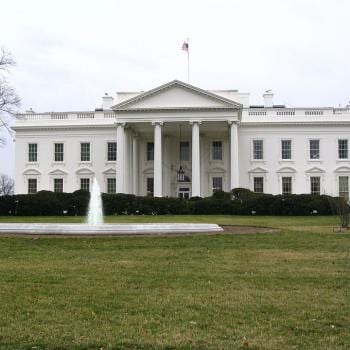A short while, health law expert Timothy Jost wrote an excellent analysis of why the abortion provisions in the Health and Senate bills barely differ – I talked about it here. The USCCB put out a response, and in return, Professor Jost has come back with a compelling point-by-point refutation. Assuming familiarity with the various points of contention, I will quote some of the highlights:
Advantages of Senate bill
“… on some issues of concern to pro-life Christians, the Senate bill is stronger than the House bill. Pages 10 through 12 of the Issues of Life memo acknowledges that the Senate bill is stronger than the House bill on end-of-life issues and on clear opposition to assisted suicide and euthanasia and discrimination against providers that refuse to participate in it. Second, the memo at page 13 notes that the Senate bill, but not the House bill, includes $250 million for support for pregnant and parenting teens, provisions modeled on the Pregnant Women Support Act, which has been supported by the Bishops. While the Secretariat Issues of Life memo does recognize these differences, it amazingly fails to mention the provision found in the Senate bill that one would have thought would have been most strongly supported by pro-life Christians. Section 1303(a) permits states to totally outlaw abortion coverage in policies issued through the exchange. No such provision is found in the House bill. Their response to my memo states that section 258(a) of the House bill, which provides that state abortion laws are not preempted, also allows states to prohibit abortion coverage. But the Stupak amendment itself explicitly authorizes qualified health benefit plans to offer supplemental abortion coverage. This could be read to guarantee health plans the right to offer supplemental abortion coverage through the exchange, regardless of state law. The CBO estimates that 6 million Americans will obtain their insurance through the exchange without receiving federal subsidies. The Senate provision would allow states that have strong anti-abortion policies to ban all abortion coverage for these people as well as for those who receive federal subsidies. The House bill does not explicitly permit this.
The Senate bill is also stronger than the House bill from a pro-life perspective in that it expands the adoption tax credit and adoption assistance programs to make adoption a more attractive and available alternative (10909). ”
Community Health Centers:
“Community health centers have never provided abortions and have no intention of providing abortions. Indeed, they cannot legally provide abortions. The Federal Regulations, 42 C.F.R. 50.301, 50.303, which date back to the 1970s, prohibit “any programs or projects supported in whole or in part by federal financial assistance, whether by grant or contract, appropriated to the Department of Health and Human Services and administered by the Public Health Services,” from the performance of abortions except for cases of rape, incest, or physical life endangerment of the mother. This includes community health center and the National Health Services Corps, which are both supported by funds appropriated to the Department of Health and Human Services and administered by Public Health Service.
Moreover, funds appropriated for community health centers and the National Health Services Corps under the Senate bill are not segregated funds, they are explicitly enhanced funding that will flow into a pool of funding for these programs that is otherwise subject to the Hyde amendment. Any community health center that attempted to use its funding to provide abortions would be in violation not just of the federal regulations, which have the force of law, but also of the Hyde amendment, as they would have no way to segregate the Hyde-appropriated funds from the funds appropriated by this Act. …The cases cited by the Bishops, which interpret earlier law and different regulations under the Medicaid program, have no relevance here. ”
Conscience protections:
“It is contended that the Senate bill does not explicitly prohibit discrimination by the federal government or federal programs or state or local governments receiving federal funding against providers that refuse to provide abortions, as does the House bill (259). Indeed, the Response memo asserts that my claim that it does, is “based on a confusion.” But section 1303(c)(2) of the Senate bill explicitly states that the bill is not intended to have any effect on federal laws prohibiting discrimination against providers who refuse to provide, pay for, cover, refer for abortion or (going beyond the House bill) “to provide or participate in training to provide abortion.” The federal law to which it clearly refers is the Hyde amendment, which, like the House bill, prohibits discrimination in federal and federally-assisted state and local programs against individual or institutional providers that are unwilling to provide abortions (as well as to other federal statutes prohibiting discrimination, such as 42 USC 238n, which forbids discrimination in physician training). Hyde is the only federal law that comprehensively covers these issues, so it is certainly the legislation the Senate bill refers to. Both the House and Senate bills, therefore, offer equal protection of providers and professionals against discrimination or violation of their conscience.
Employer-based insurance:
“Neither bill will in any way effect abortion coverage offered through employment-related plans not purchased through the exchange, which will continue to cover the vast majority of Americans, and in all likelihood continue to offer abortion coverage. These plans are, of course, subsidized by federal tax deductions and exclusions to the tune of over $200 billion a year, our largest federal subsidy for abortion. Neither bill touches this subsidy in any way, except insofar as the Senate bill imposes an excise tax on high cost plans, which may be those most likely to cover nonessential health services, like abortion.”
Federal funds and abortion:
“Both bills provide that federal funds will not pay for abortions (other than those involving rape, incest, or physical life endangerment). The House bill does this explicitly, the Senate bill by subjecting the premium subsidies and cost sharing reductions to the Hyde Amendment, which has been adopted by the House and Senate every year since 1976. The House bill, as amended by the Stupak amendment, further provides that the abortion coverage will only be available to persons who receive federal subsidies by purchasing a supplemental policy that must be paid for with private or state funds. The Senate bill, by contrast, provides that plans that offer abortion coverage may not pay for that coverage with federal funds and must collect separately from the enrollee or the enrollee’s employer a separate premium to cover the full cost of abortion coverage, not considering any reductions in the cost of coverage attributable to not having to cover the cost of prenatal care, delivery, and post-natal care. The funds provided by this separate premium must be kept strictly segregated from the funds that cover other services, and these accounts must be audited by state insurance commissioners using GAAP, OMB, and GAO accounting standards to assure this strict separation. Under both bills, federal funds cannot pay for abortion; a separate privately-paid premium must fully cover the cost of abortion. Under the House bill, two pieces of paper must be issued. Under the Senate bill only one piece is needed (although in fact abortion coverage will be offered as a rider, so two pieces will in fact issue).”
Mandated abortion payments:
“It is objected that everyone who is a member of a plan that includes abortion coverage will have to pay for abortion coverage whether they want it or not, and that every plan member will have to pay at least a dollar for this coverage. Under 1312(a), consumers who purchase coverage as individuals can choose any plan, with or without abortion coverage, available through the exchange. If they are covered by their employer through the exchange, they may choose any plan within the tier covered by their employer, including, of course, a plan that does not cover abortions.
Under 1334(a)(6), the OMB is responsible for assuring that there will be at least one plan available through every exchange that does not cover abortions (other than those allowed under the Hyde amendment). The Response memo claims that this is a change from current policy, because none of the plans that currently contract with OMB for the Federal Employees Health Benefits Program may cover abortion. But as is very clear from section 1334, the OMB program created by the Senate bill is different from and entirely distinct from the FEHBP program. The 1334 OMB program is intended to broaden the options that are available to enrollees through the exchanges, making local insurance markets more competitive. In effect it builds on the exchanges themselves to assure that individuals in the small and non-group market have a variety of tax-subsidized options available. If there is any change here, it is a change that will make abortion less available. While employee-benefit plans (including small employer plans), currently subsidized by tax deductions and exclusions, often provide abortion coverage, the Senate bill, like the House bill, assures that federal tax credit will never pay for abortions, whether coverage is purchase through an OMB plan or otherwise through the exchange….
It is argued that the Senate bill makes enrollees pay for other enrollees’ abortions. Of course, by definition, a person who buys health insurance pays for someone else’s health care. That is the nature of insurance pooling. But only those who choose to purchase abortion coverage will pay for other enrollees’ abortions, expecting that the others will pay for their own if they choose to have one.
It is also argued that the Senate approach allows federal money to be used to pay for plans that cover abortions. The essential point is that the Senate bill does not allow federal money to be used to pay for abortions. Federal Medicare and Medicaid funds currently help to pay for hospitals that pay for abortion, but they do not pay for abortions. This is directly analogous to the Senate approach.”
















